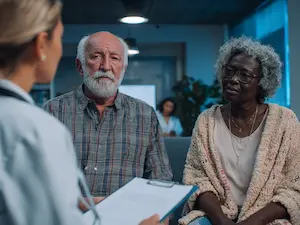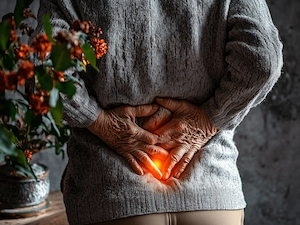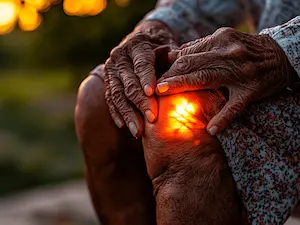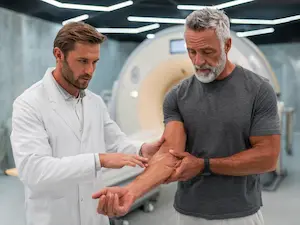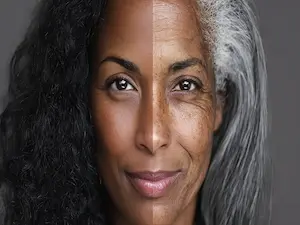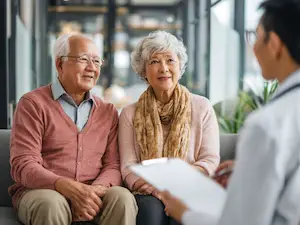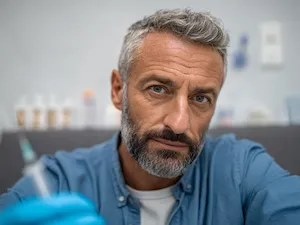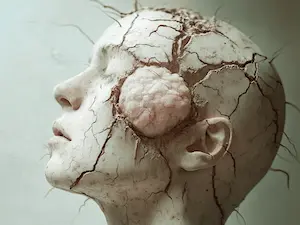South Korea has become a rising destination for stem cell therapy, offering everything from cutting-edge joint treatments to experimental therapies for conditions like Parkinson’s and autoimmune diseases. But what’s legal, what’s actually offered, and how do you know what’s legitamate?
In this guide, we break down the rules, risks, prices, and top cities. So you can decide if South Korea is the right choice for your treatment journey.
Our team is here to help you understand what treatments you can get in South Korea safely, compare how Korean Stem Cell costs stack up against other countries & which clinics you can trust.
Alt Treatment Vetting Guarantee
All prices are updated as of December 2025. Our pricing data is attained from real clinics in South Korea and verified patient treatment data. Legal Data is obtained directly from official government sources (South Korea’s Regenerative Bio Act) and is reviewed monthly.
Is Stem Cell Therapy Legal in South Korea in 2026
Yes, stem cell therapy is legal in South Korea according to the 2025 update to South Korea’s Advanced Regenerative Bio Act.
It’s regulated under the Advanced Regenerative Bio Act, which separates approved treatments and certified clinics from those that aren’t. This new law officially took effect in February 2025. You can read more about it here.
Be careful when reading online! You might read everything is legal, but there’s nuances outlined below.
How South Korea Regulates Stem Cell Therapy
Designated Regenerative Medical Institutions
These certified clinics must submit a treatment plan for review and get approval before treating patients with serious or incurable diseases.
Standard Private Clinics (Non-Certified)
Clinics that aren’t officially certified can still offer autologous stem cell treatments using your own fat or bone marrow.
Important: This doesn’t mean that stem cell therapy for Parkinson’s is officially approved. However, designated clinics are permitted to offer it as a regulated, experimental option.
What Stem Cell Treatments can I get legally in South Korea?
From a government approved regenerative medicine facility in South Korea, legally you can get cultured, autologous stem cell treatments for most conditions. So high dosage treatments using your own cells.
- However, it doesn’t mean these treatments are approved and guaranteed to work.
- It means if a clinic has proven it’s working to the correct standards, they are allowed to perform experimental stem cell treatments.
How much Stem Cell Treatment costs in South Korea (as of January 2026)
Stem cell therapy in South Korea typically costs between $3,000 and $30,000 USD, depending on the clinic, condition & type of cells used.
We’ve gathered our pricing data in a few different ways & we’re always updating it!
Prices can vary widely. Some wellness-focused clinics offering autologous treatments may charge less, while hospitals offering higher-dose umbilical cord stem cell therapy for serious conditions often fall on the higher end.
We’re actively gathering more accurate pricing across top clinics, so stay tuned. And remember, if you use one of our approved clinics, you get the best prices and a 15-20% discount on any 2nd treatment!
To compare costs with other countries globally, check out our guide on Stem Cell Treatment Costs around the world.
Not sure if you should get stem cell treatment? We’ll help you decide. We’ll walk you through real data on success rates for each condition, stem cell treatments that don’t work & how to avoid poor clinics.
What’s the price for Stem Cell therapy for Hair loss in South Korea?
For Stem cell hair treatments in South Korea, prices range from $3,000- $10,000. We looked directly at approved Stem Cell clinics in South Korea to get this information.
What’s the price for Anti Aging Stem Cell Treatments in South Korea?
For anti aging stem cell treatments in South Korea, prices can range from $3,600 – $26,000. Big range, we know! Factors affecting price are:
- Type of Stem Cell used
- How many treatments are needed
- Cell Dosages
- Delivery Method i.e localized injection, IV etc.
How Much do Orthopedic, Arthritis or Tendonitis Stem Cell Treatments cost in South Korea?
For orthopedic injuries like osteoarthritis in your knee or shoulder, it costs between $8,000 – $12,000 per joint. If you’re getting multiple joints completed, there will may be discounts on 2nd & 3rd Joints.
How much do Cartistem Knee Injections cost in South Korea?
Cartistem Knee injections cost around $26,500 in South Korea.
Hospitals will use Cartistem, an umbilical cord blood-derived mesenchymal stem cell product for Knee osteoarthritis issues.
Why so expensive? It’s the first stem cell therapy in the world that uses umbilical cord blood from donors (allogeneic) and has been proven to work long-term. It reduces inflammation and helps damaged cartilage heal back to its natural, healthy state.
Get an estimated treatment quote today
We know getting treatment quotes isn’t easy. Get a personalized, estimated quote for any country so you can compare options globally.
Get Free Cost Estimate
Approved Stem Cell Treatments in Korea
Here are examples of stem cell treatments that have been officially approved:
- Cartistem®: by Medipost
– Type: Umbilical cord blood-derived mesenchymal stem cells (allogeneic)
– Approved for: Knee osteoarthritis (especially for patients with cartilage defects)
– Approval Year: 2012 (MFDS approved)
– Not experimental: This is a commercial product, widely used in hospitals for eligible patients. - Hearticellgram-AMI: by Pharmicell
– Type: Autologous bone marrow-derived stem cells
– Approved for: Acute myocardial infarction (heart attack recovery)
– Approval Year: 2011 (MFDS-approved)
– Notes: Also approved in South Korea and used clinically. - Queencell®: by Anterogen
– Type: Autologous adipose-derived stem cells
– Approved for: Crohn’s disease-associated complex perianal fistulas
– Not experimental: Commercially available and used in certified clinics.
Not sure which country’s right for you?
Browse verified stem cell clinics in South Korea, Japan, Thailand and more that we’ve already personally vetted.
Browse Verified Stem Cell ClinicsDo I need a Visa to get Stem Cell Treatment in South Korea?
No, citizens from the UK, US, and Australia do not need a visa for short-term visits to South Korea. Your Stem Cell treatment should be done in under 90 days.
Here’s how it works:
Important: While you don’t need a visa, you must apply for a K-ETA (Korea Electronic Travel Authorization) before arrival. It’s a simple online application that usually takes a few minutes to complete.
| Country | Visa Requirement | Duration of Stay |
| United Kingdom | No Visa Required | Up to 90 Days |
| United States | No Visa Required | Up to 90 Days |
| Australia | No Visa Required | Up to 90 Days |
Top Stem Cell Therapy Clinics in South Korea


Stem Cell Therapy Scam in South Korea
One of the biggest scandals in medical science history happened right here. In the early 2000s, a prominent South Korean scientist, Dr. Hwang Woo-suk, made headlines worldwide after claiming he had successfully cloned human embryos and created patient-specific embryonic stem cells. These claims were published in Science, one of the world’s top medical journals and were seen as groundbreaking at the time.
But it all came crashing down.
Investigations later revealed that Dr. Hwang had fabricated much of his data and had also violated bioethics laws, including pressuring junior researchers to donate their eggs for experiments. He was eventually convicted of embezzling research funds and received a suspended prison sentence in 2009. His case became known as the “Hwang Affair” and left a lasting stain on the country’s scientific community.
As a result, South Korea overhauled its laws around stem cell research. Today, treatments and clinical research are far more tightly regulated under the Advanced Regenerative Bio Act. The goal: to make sure science moves forward ethically and that patients aren’t misled by unproven claims.
Risks of getting Stem Cells in South Korea
We’ve been working with clinics in Korea since the new laws came in, common risks include price hikes, poor standards which lead to side effects & sham marketing.
💰 Pricing Traps
If you’re a foreigner, clinics in South Korea are known to hike prices by 30% to 100%. We’ve already secured best pricing & exclusive discounts to make sure our users don’t get taken advantage of.
⚠️ Unverified Standards
Not all clinics follow best practice. Many won’t work with accredited labs or go through proper government approval methods for their treatments.
🩺 Poor Aftercare
Most clinics provide zero post-treatment support, leaving you alone once you travel home. For our users, we provide full post-treatment support and are here to help for free should anything go wrong.
📢 Sham Marketing
There’s still a lot of sham marketing, using influencers & fake success stories. Don’t believe everything you read!
Latest advancements in Stem cell therapy in South Korea
South Korea’s making some interesting advancements around Stem cell treatments:
- Cellino and Karis Bio are partnering to develop the first autologous iPSC therapy for cardiovascular disease, now in human trials in South Korea. The treatment uses a patient’s own cells to grow new blood vessels and avoid rejection.Full Details are in this article!
- South Korean biotech firms have made significant strides in developing stem cell therapies for Parkinson’s disease. S.Biomedics is advancing TED-A9, an embryonic stem cell treatment showing early success. Notably, a patient regained mobility, highlighting the therapy’s potential. They gave their update in this report.
- In 2023, South Korea put its money where its future is. Dropping ₩400 billion (about $300 million USD) into twelve breakthrough biotechnologies, including stem cell therapy, gene editing, and organoid research. The goal? To become a world leader in biotech innovation. As part of the plan, they’re building five national bio hubs by 2028, featuring cutting-edge facilities like automated bio foundries and a central data powerhouse to fuel the next generation of medical breakthroughs. This article covers all their initiatives.
So can I get safe Stem Cells in South Korea?
Yes, you can get Stem Cell treatments safely in South Korea. To be extra safe, make sure you’re visiting a government approved regenerative medicine facility.
To help, we’ve already vetted clinics who are government approved regenerative medicine facilities & can help you connect with the right clinics & secure best pricing.
Is South Korea good for Stem Cell Therapy?
With the new regulations implemented in 2025, South Korea is a great option for Stem Cell Therapy, as long as you’re visiting compliant clinics.
Why Patients Consider South Korea:
- Legal Framework: Stem cell therapy is legal and regulated under the Advanced Regenerative Bio Act, which came into effect in 2025. This allows approved hospitals to offer experimental treatments (e.g., for Parkinson’s or autoimmune disease) under government oversight.
- Biotech Investment: The Korean government has invested heavily in biotech, pouring ₩400 billion (~$300 million USD) into treatments like stem cells.
- If you want to read about Seoul specifically, we cover the best areas to stay and things to watch out for in Seoul if you’re getting treatment on our Seoul Stem Cell Treatment article.
If you are going to choose Korea, definitely be careful about choosing which clinic you’re going to use. Korea does have one of the leading healthcare systems in the world, but it can be the wild west for Stem Cell Therapy.
That’s where we step in. Our team is here to help you understand regulations in South Korea, options you have here & across Asia and what to expect cost wise.
If you’re thinking about South East Asia for Stem Cell Therapy, Japan might also be an interesting option for you. We’ve put together the full guide for Japan here and another article looking at the Best Countries for Stem Cell Therapy.
Alt Treatment is a free, independent platform that helps you understand stem cell therapy & decide if it’s right for you.
We break down complex information into clear, honest guidance. When you’re ready, we can connect you with verified clinics that meet your needs, in the right location & often with exclusive discounts.
There’s no charge to use our platform. No hidden fees. No pressure. Our main aim is to genuinely help you figure out if treatment is right & the best places to consider.
If you want to talk, fill out our form here & our personal concierge team will reach out.
Stem cell therapy in South Korea can be used to treat arthritis, autoimmune diseases, Parkinson’s disease, certain cancers, and other serious or incurable conditions. Treatments for joint repair and anti-aging are also offered at some clinics using autologous stem cells.
한국에서 줄기세포 치료는 보통 클리닉, 치료 목적, 사용되는 세포 종류에 따라 약 390만 원에서 3,900만 원 사이의 비용이 듭니다. 아래는 치료 유형별 예상 비용입니다:
탈모 치료: 390만 원 ~ 1,300만 원
안티에이징: 470만 원 ~ 3,380만 원
정형외과, 관절염, 힘줄염 치료: 1,040만 원 ~ 1,560만 원
발기부전 치료: 1,105만 원 ~ 1,560만 원
카티스템(KartiStem) 무릎 골관절염 치료: 병원에서 카티스템을 받을 경우 약 3,380만 원부터 시작합니다.
저희는 정부 인증을 받은 한국의 줄기세포 클리닉과 협력하여 전체 과정을 안내하고 최고의 할인 혜택을 드립니다. 여기를 클릭하세요 개인 컨시어지팀과 상담하세요
在韩国,干细胞治疗的价格通常根据诊所、治疗目的和所使用的细胞类型不同,大约在 20,700元至207,000元人民币 之间。以下是各类治疗的大致费用:
脱发治疗: 20,700元 ~ 69,000元
抗衰老: 24,800元 ~ 175,000元
骨科、关节炎或肌腱炎治疗: 55,100元 ~ 82,700元
勃起功能障碍治疗: 58,600元 ~ 82,700元
CartiStem膝关节骨关节炎治疗: 在医院接受CartiStem治疗时,起价大约为175,000元起。
我们与韩国政府认证的干细胞诊所合作,为您全程提供支持,并帮您争取最优折扣。点击这里,与我们的专属礼宾团队联系
Liệu pháp tế bào gốc tại Hàn Quốc thường có chi phí từ 75 triệu đến 750 triệu đồng, tùy thuộc vào phòng khám, tình trạng bệnh và loại tế bào được sử dụng. Dưới đây là chi phí ước tính theo từng loại điều trị:
Điều trị rụng tóc: 75 triệu ~ 250 triệu đồng
Chống lão hóa: 90 triệu ~ 650 triệu đồng
Rối loạn cương dương: 212,5 triệu ~ 300 triệu đồng
Điều trị chỉnh hình, viêm khớp hoặc viêm gân: 200 triệu ~ 300 triệu đồng
CartiStem cho thoái hóa khớp gối: Nếu điều trị CartiStem tại bệnh viện, chi phí bắt đầu khoảng 650 triệu đồng.
Chúng tôi hợp tác với các phòng khám tế bào gốc tại Hàn Quốc được chính phủ phê duyệt và sẽ hỗ trợ bạn trong toàn bộ quá trình, đồng thời giúp bạn nhận được ưu đãi tốt nhất. Nhấn vào đây để trò chuyện với đội ngũ concierge cá nhân của chúng tôi
In theory, some stem cells do have the potential to grow cancer tumors. Read more about it on our article covering Stem Cell treatment Side Effects.
Right now, stem cells haven’t been proven as a cure for Alzheimers, but early data has shown it can help slow down the progression of the disease & symptoms. To read more about how Stem Cells can help with Alzheimer’s, our article on Stem Cell Therapy for Alzheimer’s might be useful.
Or, if you want to see how stem cells can help other conditions, check out our Areas of Treatment Section.
We’ve vetted numerous clinics in South Korea personally checking their clinic status, medical team registrations & certifications. We constantly monitor every patients treatments success rates & side effects so know which clinics are delivering results.
We don’t aim to have EVERY clinic on our platform, only the ones we can safely recommend.
You can view our vetted clinics in South Korea here.
Both countries are good options. We put together a full comparison of legal regulation, treatment options & costs.
Read our Japan & South Korea Comparison guide to learn more.
Fill in your details below
For a discounted offer for Stem Cell Therapy!
